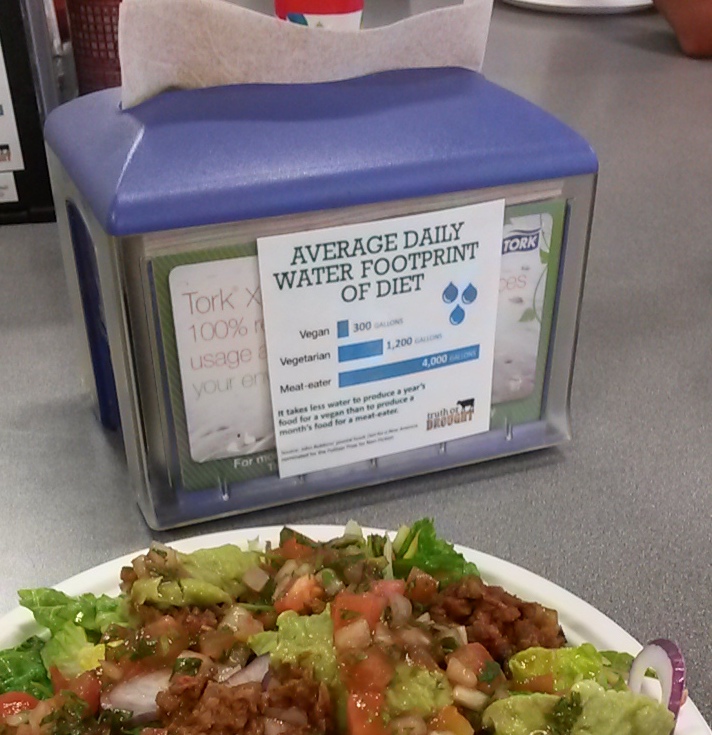By: Philine Qian
ENST 490 was the highlight of my Spring 2017 semester at USC. I was most excited that the 490 course was offering students significant freedom in choosing and molding the topics they would research, related to one of three sustainability topics at the Wrigley Marine Lab on Catalina: water, waste or energy.
When the spring semester started, I chose to work with a team of students specializing in waste and organic waste diversion. As our team began discussions about measuring organic waste and effective composting methods on Catalina, I started thinking about the impact that the meat industry has on waste, carbon output and water consumption. Since we were working on mechanisms to divert waste, I felt that a reduction in meat consumption – meat being a leading consumer of water, a significant producer of carbon, and a product that does not compost well – would be a great mechanism to significantly reduce the waste Wrigley was producing.
From there I set out to collect data that would give me the tools to calculate water and cost footprints of the meals served at Catalina, as well as distribute a survey that would gauge the support of visitors and diners in favor of “Meatless Mondays,” a new initiative started in the Wrigley Marine Science Center’s dining halls earlier that semester. Both chefs on the island, Phil and Jose (thank you both!!!) were instrumental in collecting this data as they recorded the specific ingredients and ingredient quantities they used to prepare meals in the dining hall over the course of 4 weeks.
Ultimately, the cost breakdown showed the average cost to produce one meal for one person at Wrigley is $2.99 for a meatless meal, and $3.65 for a meat-inclusive meal, indicating that meatless meals are the more cost-effective meal option.
Also, the data we collected, combined with online calculations for agricultural water use, showed it takes an average of 240 gallons of water per person to produce one meatless meal – meanwhile it takes more than double that amount, 524 gallons of water per person to make a regular meat-inclusive meal.
From a group of 60 Wrigley visitors surveyed, 92% supported Meatless Monday in the dining hall. From these data we concluded that Meatless Mondays at Wrigley are beneficial to water conservation, cost reduction and consumer satisfaction.
I’m happy that Meatless Mondays continue to be one of the many sustainability initiatives at the Wrigley Institute. While these data reflected the outcome that I expected, I was glad to have the ability to produce these numbers on a small scale through a process in which I had control of all data figures. Through this experience, I learned how to be flexible in research projects, work within an administrative bureaucracy to collect data and push for sustainability, as well as work with the incredible staff at the Wrigley Institute who were supportive, kind, and excited to work with undergraduate students. As a student, it is so unique to find mentors and professionals who take interest in our work and value us as people – I believe the Wrigley staff is exceptional in their support and training of undergraduates. I absolutely recommend this research experience to any student who has even the slightest interest in pursuing sustainability research and initiatives, I promise you will at the very least, learn something new and feel proud of the work you do!
Philine is a USC Environmental Studies major, Class of 2018. Her spring project was titled: Vegetarian or omnivorous? A study on the quantitative impacts of eating animal products vs. ‘meatless Mondays’


